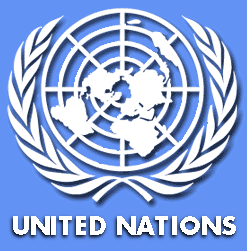Many nations around the world, experience turmoil and conflict either within or along their borders. Africa is no different. CDR has worked with the United Nations Institute for Training and Research (UNITAR) for many years to design and present customized international training programs on culturally appropriate dispute resolution and mediation procedures that can help resolve conflicts within and between nations. In April of this year, CDR conducted its 11th seminar, a major component of UNITAR’s Regional Training Programme to Enhance Conflict Prevention and Peace Building in Africa. This program was held in Addis Ababa, Ethiopia, the headquarters of the African Union. Earlier programs were held in Cape Town, South Africa, and Harari, Zimbabwe.
The program was attended by African officials and delegates from the African Union, African Foreign Service officers and a range of other government officials from across the continent. CDR presented lectures and used an African conflict simulation for participants to practice mediation and negotiation procedures and skills.
The Training Program Covered How To:
- Conduct and apply a rigorous situation assessment or conflict analysis
- Develop and implement appropriate and effective conflict resolution strategies and tactics
- Apply interest-based negotiation procedures rather than engage in positional bargaining
- Use mediators and a mediation process effectively
- Identify principles as future frameworks for agreements
- Generate a range of possible options for agreements
- Break deadlocks that impede settlement caused by people, procedures or substantive issues
- Narrow options and build durable solutions and agreements
- Apply interest-based negotiation and mediation procedures to address and resolve common political, economic and social conflicts – recognition of diverse languages, cultures and religions; the form of political structures and selection of leaders; the roles of military and police in society and who serves in them; decisions about natural resources, their exploitation and management and allocation of benefits; and the degree of influence ethnic minorities have over their lives
For more information, contact Christopher Moore or UNITAR.

